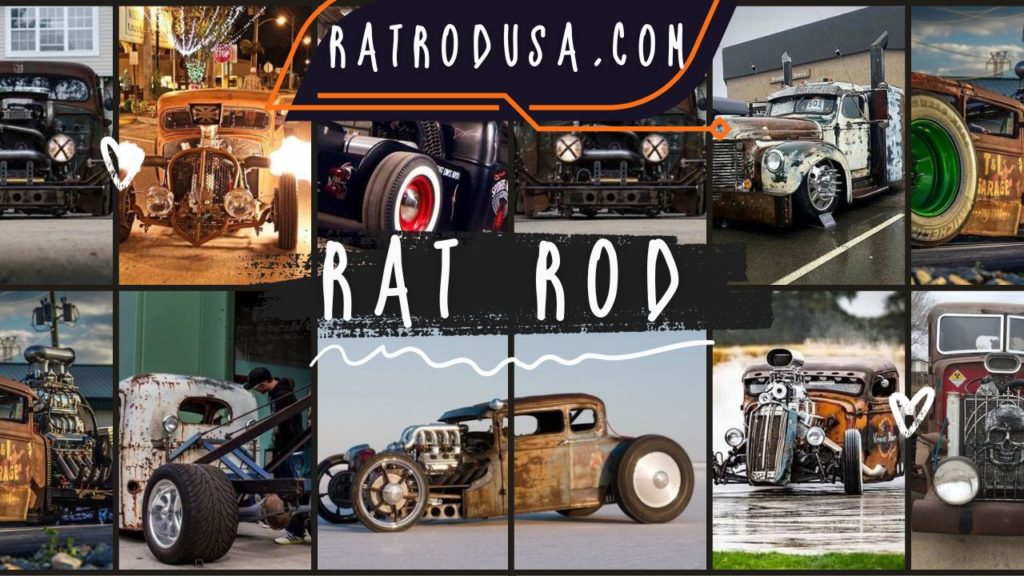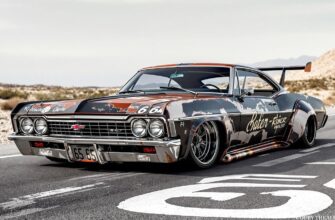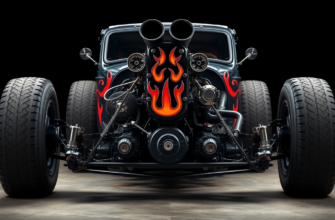Do you know the difference between Rat Rod and Hot Rod? Short answer is here!
Introduction
In the world of automotive customization, there exists a subculture that celebrates the unconventional and embraces the allure of imperfection. Rat rods, as they are commonly known, represent a unique breed of custom cars that defy traditional norms. These vehicles boast a deliberately worn-down and unfinished appearance, often devoid of paint and proudly displaying traces of rust. In this article, we will delve into the fascinating world of rat rods, exploring their origins, defining characteristics, and the passionate community that surrounds them.
Origins of Rat Rods
The origins of rat rods can be traced back to the mid-20th century, when resourceful car enthusiasts sought to create unique vehicles using limited means. Inspired by hot rods and the burgeoning hot rod culture, these intrepid individuals repurposed old, discarded automobiles, salvaging parts and creatively combining them to build their own distinctive rides. Rat rods emerged as a rebellious response to the polished and high-priced customs of the time, embracing a raw, unrefined aesthetic.
Defining Characteristics
The defining characteristic of a rat rod lies in its intentionally rough and weathered appearance. Unlike traditional custom cars, rat rods lack glossy paint jobs and pristine finishes. Instead, they proudly exhibit exposed metal, often showing signs of rust and patina. The bodywork may feature dents, scratches, and imperfections, further emphasizing the car’s raw and unapologetic identity. Rat rods often incorporate unconventional modifications, ranging from unconventional suspension setups to unique engine choices, reflecting the owner’s ingenuity and individuality.
Creative Expression and Customization
One of the most fascinating aspects of rat rods is the creative freedom they provide to their owners. Rat rod enthusiasts revel in the opportunity to experiment with various styles, incorporating personal touches and unconventional elements into their builds. This freedom extends to the choice of powertrain, where anything from vintage engines to modern performance units can find a home under the hood. The absence of strict rules or conformity allows for an unparalleled level of artistic expression, resulting in truly one-of-a-kind creations.
Community and Culture
Beyond their striking appearance, rat rods have fostered a passionate and tight-knit community. Enthusiasts gather at car shows, swap meets, and events dedicated to celebrating the rat rod culture. These gatherings serve as platforms for sharing knowledge, showcasing builds, and forging connections with like-minded individuals. Rat rod owners often emphasize camaraderie, exchanging tips, tricks, and stories, while inspiring others to embark on their own creative journeys.

Controversies and Challenges
While rat rods enjoy a dedicated following, they are not without controversy. Critics argue that the deliberate neglect of paint and bodywork can be seen as neglecting the preservation of automotive history. Additionally, safety concerns arise due to the unconventional modifications and potentially outdated mechanical components. However, proponents of rat rods maintain that their cars represent a unique form of automotive art, showcasing resourcefulness, individuality, and the spirit of rebellion.
Conclusion
Rat rods stand as a testament to the human desire for self-expression and the celebration of imperfections. They embody a rebellious spirit, challenging the status quo of automotive aesthetics and offering a canvas for creativity. Rat rod enthusiasts continue to push boundaries, reimagining the possibilities of customization while sharing their passion with a vibrant community. Whether you appreciate their unrefined beauty or not, there is no denying the impact and allure of these evocative machines that proudly bear the marks of time and wear.
(56)










